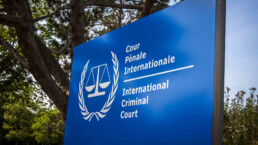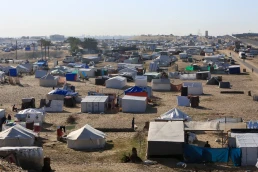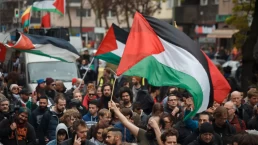This country might want to lower its expectations.
by Rebecca Gordon, Tom Dispatch
Let me start with a confession: I no longer read all the way through newspaper stories about the war in Ukraine. After years of writing about war and torture, I’ve reached my limit. These days, I just can’t pore through the details of the ongoing nightmare there. It’s shameful, but I don’t want to know the names of the dead or examine images caught by brave photographers of half-exploded buildings, exposing details — a shoe, a chair, a doll, some half-destroyed possessions — of lives lost, while I remain safe and warm in San Francisco. Increasingly, I find that I just can’t bear it.
And so I scan the headlines and the opening paragraphs, picking up just enough to grasp the shape of Vladimir Putin’s horrific military strategy: the bombing of civilian targets like markets and apartment buildings, the attacks on the civilian power grid, and the outright murder of the residents of cities and towns occupied by Russian troops. And these aren’t aberrations in an otherwise lawfully conducted war. No, they represent an intentional strategy of terror, designed to demoralize civilians rather than to defeat an enemy military. This means, of course, that they’re also war crimes: violations of the laws and customs of war as summarized in 2005 by the International Committee of the Red Cross (ICRC).

The first rule of war, as laid out by the ICRC, requires combatant countries to distinguish between (permitted) military and (prohibited) civilian targets. The second states that “acts or threats of violence the primary purpose of which is to spread terror among the civilian population” — an all-too-on-target summary of Russia’s war-making these last 10 months — “are prohibited.” Violating that prohibition is a crime.
Recent Posts
Stop Israel’s Dystopian “Humanitarian City” Plan—Before It’s Too Late
July 11, 2025
Take Action Now For the past 20 months, the world has watched—and largely enabled—a genocidal campaign in Gaza. Over 55,000 Palestinians have been…
The “Liberal” International Order Is Criminalizing Palestine Protests
July 11, 2025
Take Action Now As Western governments repress Palestine solidarity and enable Israel’s impunity, the “liberal international order” is no longer…
Politicians Are Betraying Gen Z On Climate
July 10, 2025
Take Action Now While Gen-Zers thrift, knit, crochet, and find other ways to reduce our footprints, Trump and the GOP are greenlighting more climate…
Trump’s Deportation Threat Against Zohran Mamdani Is Shameful
July 10, 2025
Take Action Now In only half a year of Donald Trump’s presidency, he and his allies have turned deportation into an explicitly political threat…




